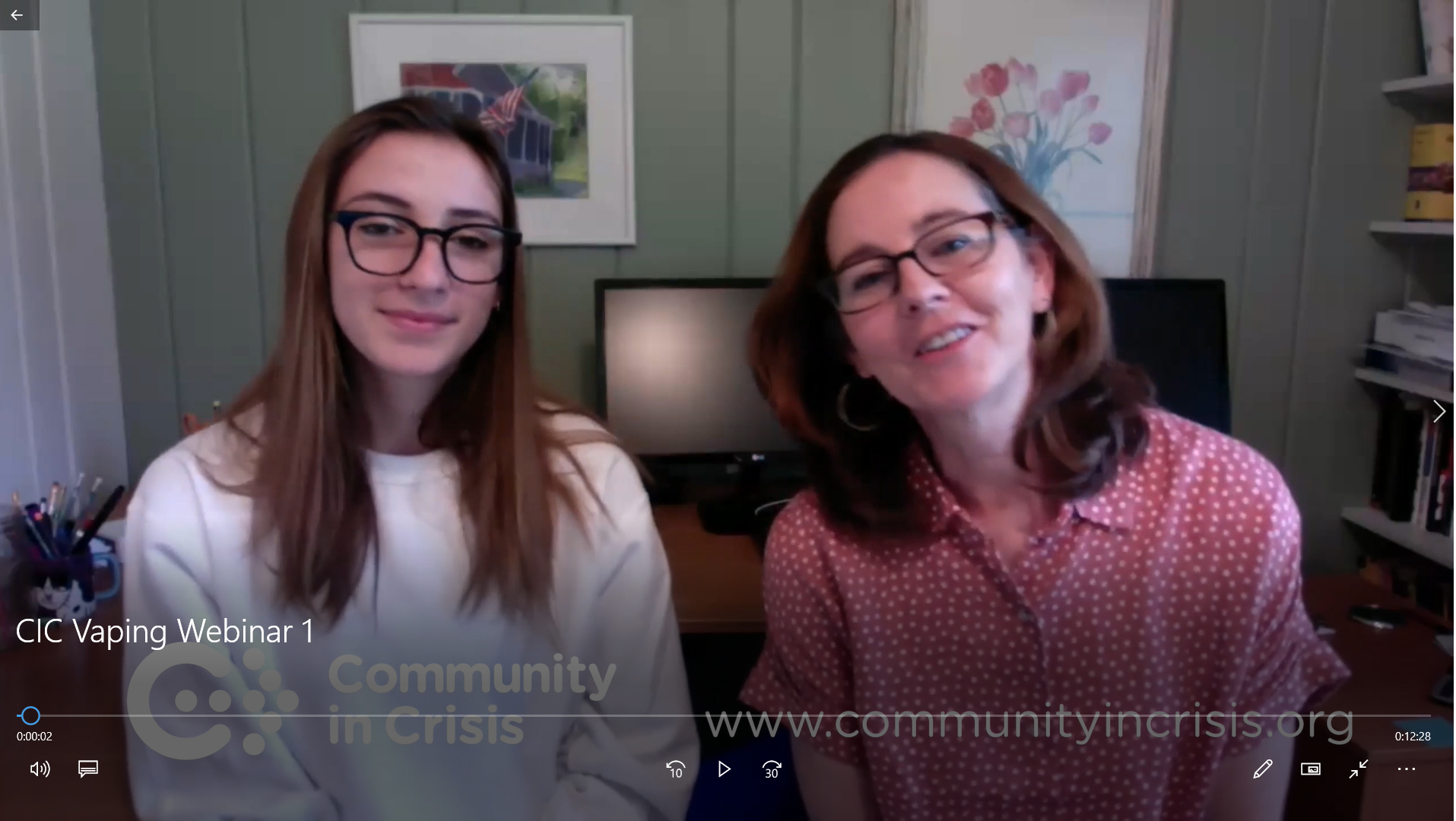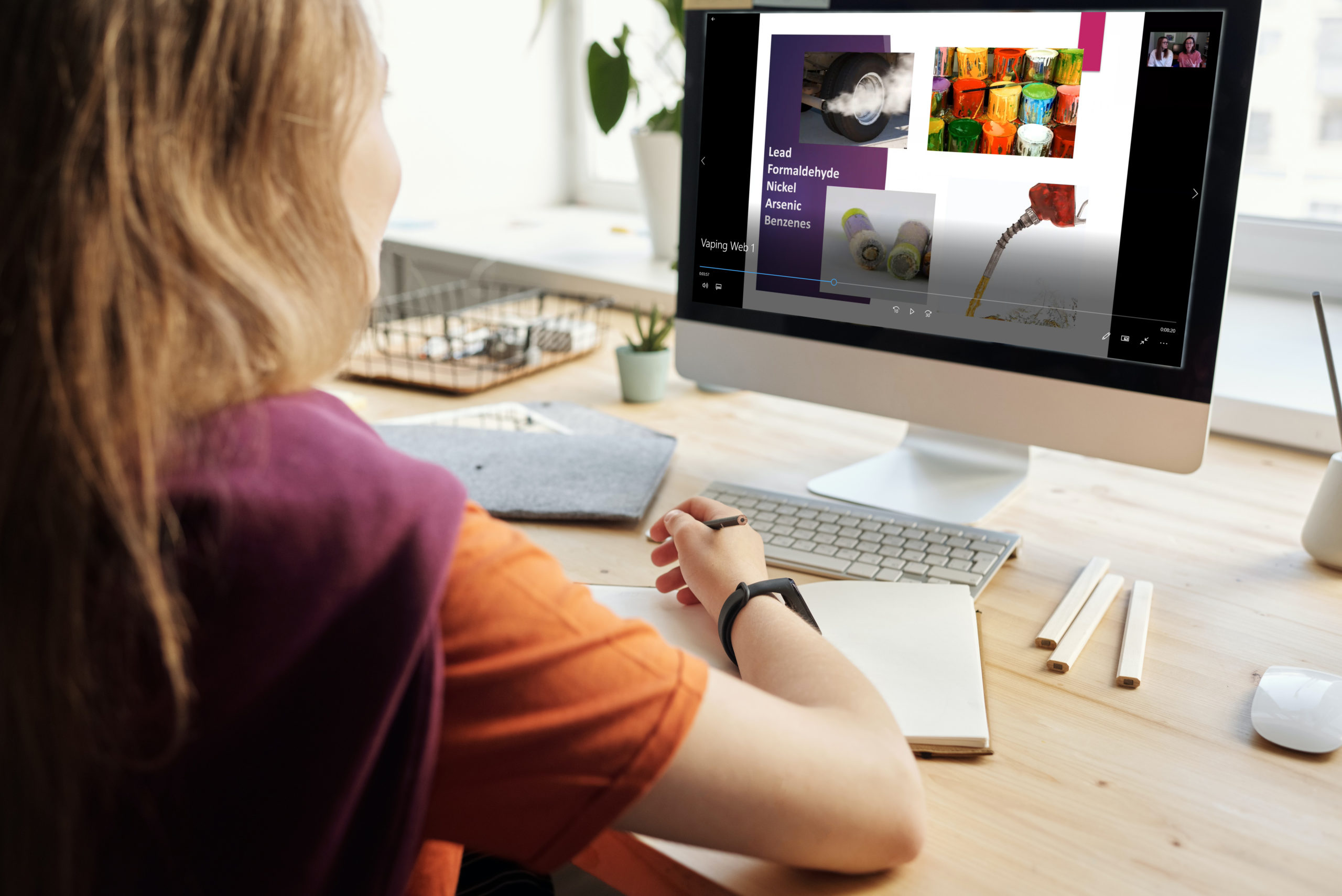Bernardsville News
By CHARLIE ZAVALICK Editor
May 18, 2020
BERNARDS TWP. – To some extent, the danger of vaping and smoking by teenagers may have slipped from the public’s radar during the COVID-19 pandemic.
But an ongoing educational initiative developed by the local Community In Crisis (CIC) non-profit organization is designed to make sure parents, teachers and particularly students realize that these bad habits are even more dangerous during the ongoing health crisis.
“Vaping is always a bad idea but with COVID-19, it’s REALLY bad,’’ a flier for the the initiative reads. “Lungs injured from vaping or smoking may increase a person’s vulnerability to COVID-19 and possibly greater severity of the illness, according to the American Lung Association.’’
As part of its comprehensive community outreach program, CIC will be offering a live discussion on the topic through the Zoom online computer application starting at 4 p.m. on Thursday, May 28. Details for the virtual program will be available at the CIC website, https://communityincrisis.org/quit-smoking-for-covid-19/.
The session will feature a discussion of the issues and a question and answer period. Topics to be reviewed include the best “quit tools available,’’ support lines, websites and “virtual quit groups.’’ Parents, educators, students and even those who’ve quit smoking are invited to participate. They can do so anonymously or can engage in the discussion. Leading the effort is Dr. Heather Athanasiou of Basking Ridge, a veterinarian and concerned parent who has been working with CIC for about two years. She started as a volunteer for the non-profit group, making presentations on vaping at various school programs and local health fairs.
To bring a youth perspective to the effort, Dr. Athanasiou has teamed with her daughter Maddie, a 19-year-old college student, to produce a series of webinars now available to view on the CIC website. “We’d love to have teachers download this and use it,’’ Dr. Athanasiou said. “Here’s a nice, easy package for teachers when everyone is in quarantine.’’

In the 1st webinar, entitled “Vape free, Breathe Free,’’ Maddie, a sophomore at the University of Indiana and a 2019 Ridge High School graduate, explains how younger people can jeopardize their health during the pandemic by vaping.
The video shows a group of senior citizens, a teen with a cigarette and a cancer treatment patient. The common element among the pictured individuals: They are all at “a really high risk’’ for the more serious complications of COVID-19 because they have compromised immune systems.
“I thought that was crazy that if I was a vaper or smoker that I could be in the same category as my 85-year-old grandfather with heart disease,’’ Maddie said. “And that’s really alarming to me.’’ While the virus has largely impacted the elderly, sharing vaping devices may increase COVID-19 transmission, according to the video.
Social Aspect
Dr. Athanaslou said that while the pandemic might be “horrible time for some to quit’’ vaping or smoking, it may also be an ideal time for others since vaping is often a social activity for many. “The social aspect is a really big reason some kids vape,’’ she said. “They may ask, ‘Why am I sitting here vaping alone?’ “
The fifth webinar in the series, she noted, focuses largely on quitting. “Everyone is in agreement that smoking eects the lungs,’’ she said. “You’re putting yourself in a greater risk group. We know from all the hospitalizations last fall that vaping can cause lung damage.’’ While many people feel that things are out of their hands during the pandemic, “here’s something you can do to take control’’ of your own health, she said.
The videos are part of a vast amount of educational material available on the website, which Dr. Athanasiou said is available for all to use. Linked resources include guides for parents to talk with their teens; nicotine cessation guidelines for adolescents; help with quitting; and the latest news on vaping. Prior to the pandemic, CIC presented information directly by setting up vaping display tables at local schools, including Pingry, Bernards High School, Watchung Hills Regional High School and Somerset County Vo- Tech in Bridgewater.
But the educational outreach has now shifted because “we can’t go into the schools and do assemblies anymore,’’ Dr. Athanasiou said. The online eort is designed to provide resources to educators such as health teachers who are looking for information to present to their students during the days of distance learning. “We don’t know if teachers had this available but we’re happy to disseminate it and share it,’’ she said. “Everybody shouldn’t be reinventing the wheel. It’s free and its ready to go now.’’
“If you can reach parents, that’s great,’’ she added. “But I think the teachers are the ones that need to reach our kids. Right now is a really prime opportunity to do so. The most important audience is the teenagers.’’
According to the CIC website, staff training materials are available “emphasizing latest usage trends among youth, new government policies, new devices, signs and symptoms, most convincing prevention messaging, how to incorporate vaping information in subject classes, possible home projects, importance of quitting during COVID threat.’’ Material is also targeted specifically for school nurses, coaches and others.
“Don’t let COVID derail plans for vaping education,’’ it notes. “In fact, vaping education and quitting are more important than ever.’’


